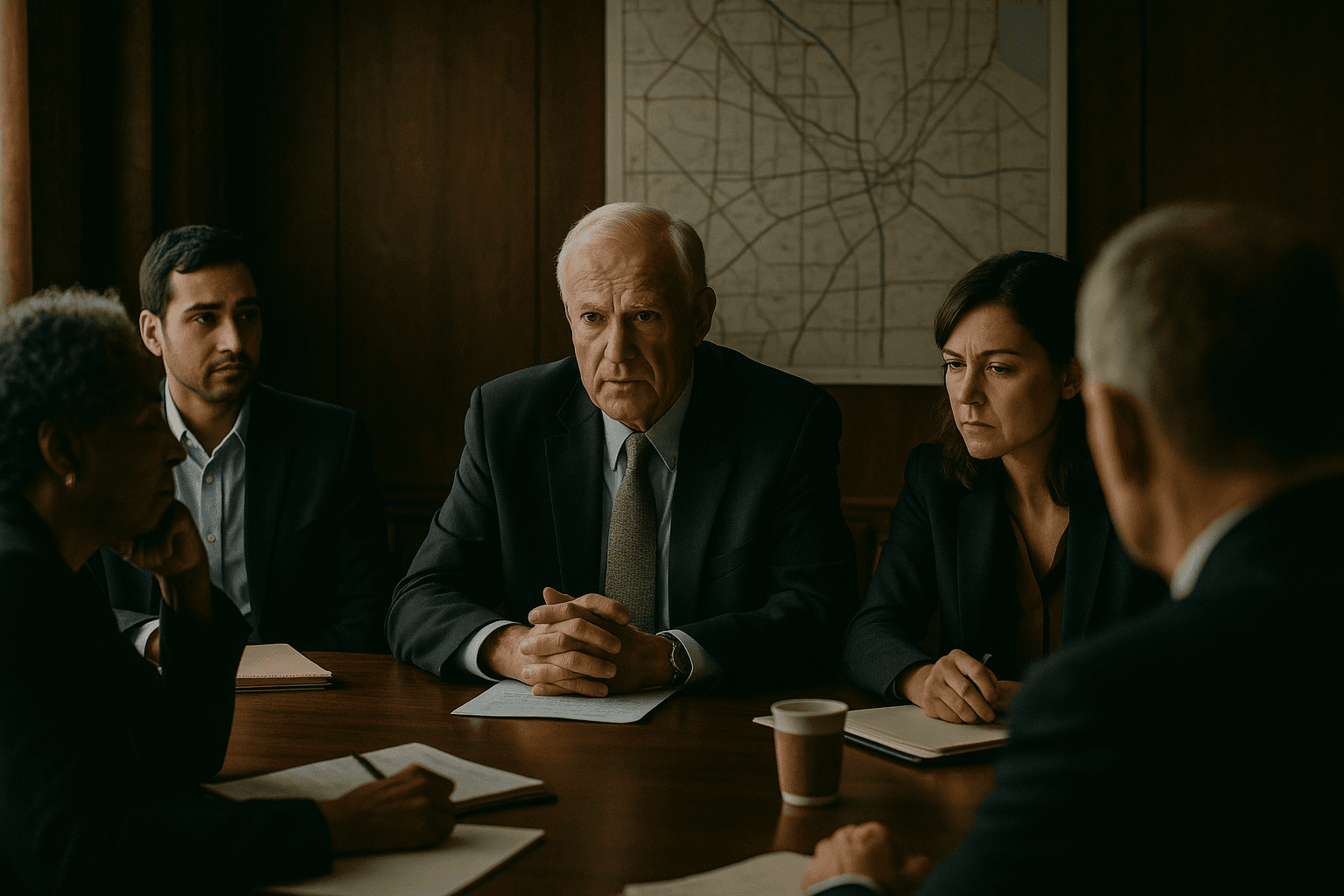Plano Appoints Committee to Study Transit Alternatives Ahead of Election
Plano City Council appointed a 12 member citizen Collin County Connects Committee on November 24 to evaluate transit alternatives before a May 2, 2026 special election on whether the city remains in DART. The panel chaired by former Plano Mayor Phil Dyer will meet in December to review options including rail, microtransit, and private providers, and deliver recommendations to council by December 16.

Plano city leaders moved this week to formalize community analysis of transit options as voters prepare to decide the citys membership in the Dallas Area Rapid Transit system. On November 24 the City Council appointed 12 residents to the citizen led Collin County Connects Committee, selecting former Plano Mayor Phil Dyer to chair the panel. The committee will meet five times between Dec. 2 and Dec. 16 to evaluate accessibility, safety, cost, wait times, connectivity and cleanliness across potential systems and vendors.
The committee is charged with producing a set of recommendations for City Council by the Dec. 16 deadline. City staff have said they hope an alternative transit system could be ready as early as mid February or by March 2, 2026 depending on decisions about timelines and implementation. Those plans will run alongside a separate submission the city made to DART on Nov. 14 that emphasizes a rail focused proposal.
Committee deliberations will explicitly examine non rail options as well. City leaders are exploring microtransit models and contracting with private providers including Uber and Via as potential ways to maintain mobility for residents if voters choose to leave DART. The December meetings are designed to allow committee members to compare vendors and service models on operational metrics and user experience.

The outcome of this process will have direct implications for daily commuters, seniors, people with disabilities, and households without reliable car access. An alternative service model could change routes, schedules, and costs for riders and taxpayers, and will inform the operational and budget choices council faces before the May 2, 2026 special election.
Residents who rely on public transportation or who are concerned about taxpayer obligations will have a short window to follow the committees work and to weigh in as council considers staff recommendations. The councils timetable aims to present voters with a clear comparison of options ahead of the ballot, making December a pivotal month for local transit policy and for civic engagement in Plano.

.jpg.jpg%3Fitok%3DPCPO4pbT&w=1920&q=75)
